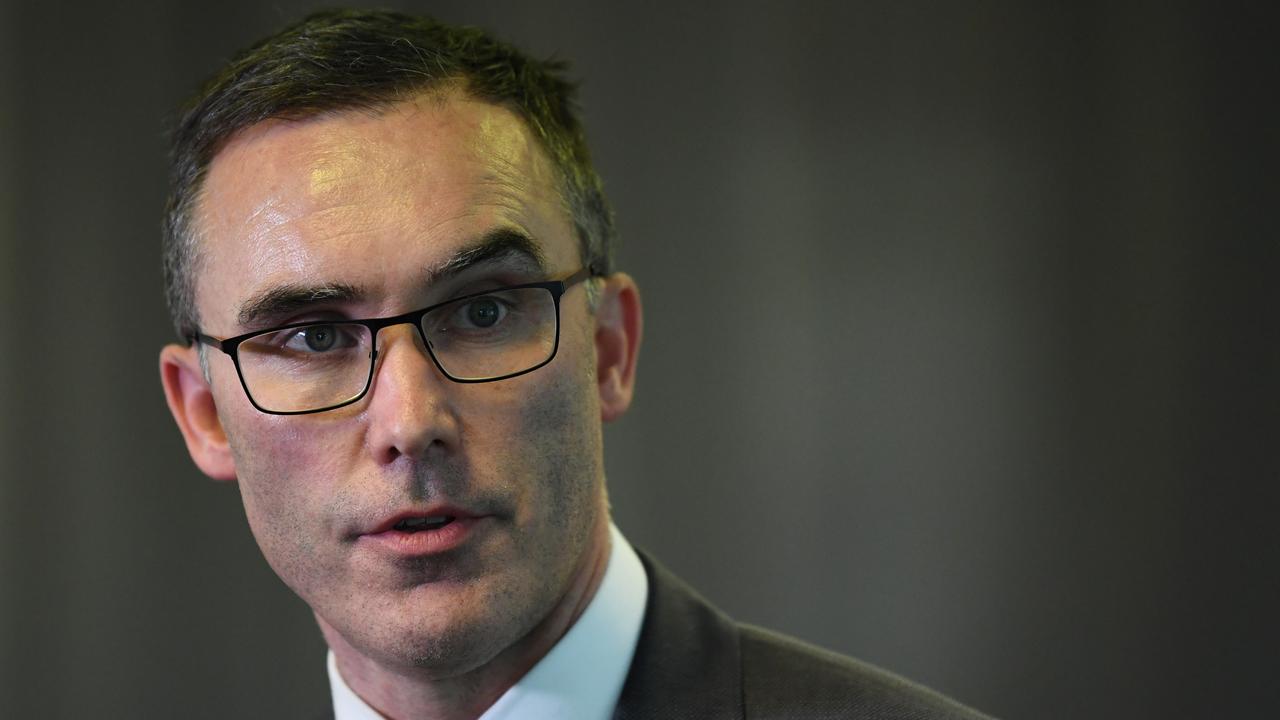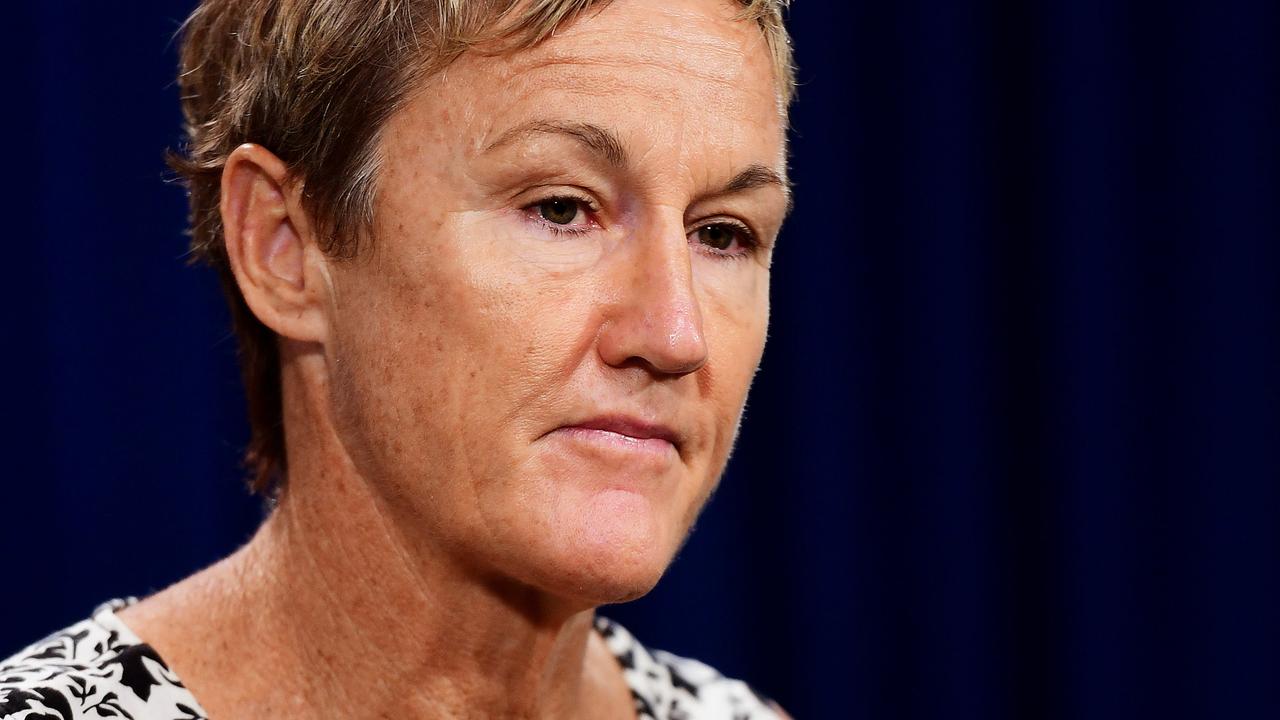Nick Xenophon factor turns SA election into a three-ring circus
Thanks to Nick Xenophon, the South Australian election looms as one of the great political circuses of the modern era. Buckle up.

It sounds on paper like one of the least interesting elections in Australian history: a 16-year-old Labor government that has delivered unreliable and unaffordable electricity, and that has been smashed by scandals in health, aged care and child protection, versus a Liberal opposition that finally has banished the scourge of factionalism and benefited from a favourable redraw of electoral boundaries.
By any measure the expectation would be a comfortable, or crushing, conservative win.
It looms instead as one of the great political freak shows of the modern era, the X factor being the candidacy of the eccentric populist Nick Xenophon, making the most seasoned pundits shy away from predicting a result when South Australians go to the polls next Saturday. With candidates in 36 of the state’s 47 lower house seats, Xenophon’s SA-Best party, while battling a recent softening of support, still has the potential to split the Liberal vote in key seats and eat away at Labor’s base with blue-collar voters who are sick of punishingly high power bills but still baulk at backing the Libs.
Former premier and bon vivant Don Dunstan, who famously released his own cookbook while governing the state, was fond of describing Adelaide as the Athens of the south. There is every chance that next Saturday it will more closely resemble Rome as the major parties scramble to seduce MPs from SA-Best and a handful of other independents, the result being a minority government that many South Australians fear will be a complete shambles.
For the Liberals, the prospect of snatching defeat from the jaws of victory is a horrible but familiar scenario. The party has governed for only 10 of the past 36 years, its time in office most memorable for the endemic brawling between the moderates and conservatives.
Moderate Dean Brown coasted home on the back of Labor’s $3.15 billion State Bank collapse at the 1993 election, whereupon the Liberals immediately squandered their mandate and went to war with themselves. Conservative John Olsen seized the premiership in a mid-term coup and led the party to re-election but resigned in its second term after inadvertently misleading parliament over a privatisation deal.
His replacement, the avuncular but guileless country MP Rob Kerin, lasted barely six months in the job and was played off a break by cunning Labor leader Mike Rann when the 2002 election failed to deliver a majority to either side. Rann cuddled up to a now-deceased Liberal MP, Peter Lewis, who at that point was known only for having declared during a late-night sitting that he would be supporting voluntary euthanasia laws on account of the fact he had executed a mortally wounded friend while conducting “black ops” for the UN in the jungles of Thailand.
Lewis, regarded by many of his colleagues as unhinged, was wooed by Rann with the promise of the speakership, and a Labor minority government was formed. They’ve been in power ever since and, if re-elected next Saturday, will govern for an almost unbelievable 20 years straight.
Steven Marshall celebrated his fifth anniversary as SA Liberal leader last month. Creditably, he has used the time to banish the scourge of factionalism within his party, despite his close friendship and ideological allegiance to the divisive national spear-carrier for the moderates, federal member for Sturt Christopher Pyne.
Marshall is a successful businessman who ran a furniture factory, then created a takeaway chain. He has carved a clear policy space as a Liberal centrist, promising to abolish payroll tax for all businesses with a payroll of less than $1.5 million and offering new money for apprenticeships. With Adelaide being a government town, he has eschewed the scorched-earth stylings that tripped up former Liberal leaders, who unnerved voters by promising to take an axe to the state’s burgeoning public service. With this moderate formula, Marshall came close to winning at the election four years ago, securing a hefty 53 per cent of the popular vote but failing in key marginals. With the Libs on 22 seats and Labor on 23, SA again became the venue for a Labor charm offensive against independent MPs.
Every man has his price, and for country independent Geoff Brock it was a ham and pineapple pizza, over which the Labor Premier Jay Weatherill sweet-talked the former Port Pirie mayor into backing the ALP, rewarding him with the regional development ministry and cash to protect steel jobs in SA’s Iron Triangle.
Weatherill already has had one political miracle in him, and that was the 2014 election win. Every analyst wrote off Labor when a mid-term factional brawl with right-faction supremo and Rudd-knifer Don Farrell saw Weatherill threaten to quit as Premier in the final weeks of the campaign. Rather than highlighting Labor chaos, voters marked the Premier up for his courage in standing up to one of the faceless men. Labor snuck across the line.
That episode spoke volumes about Weatherill’s character and explains why he believes he is capable of a second political miracle when SA votes next week. Despite his mild-mannered demeanour, and lifelong commitment to Labor’s left faction, Weatherill has ice in his veins and relishes a brawl.
Like some KGB hit, he wrested the premiership off Rann in an unanticipated coup in 2011, and subsequently slotted or sidelined several Rann-era ministers and mandarins.
During this past term of government he has made an art form, in the style of Peter Beattie or Joh Bjelke-Petersen, of going to war with Canberra over water rights, energy policy, GST share, the car industry, health funding — even when the Abbott and Turnbull governments were showering the state with defence contracts to boost jobs (and hold seats) in this struggling, post-manufacturing economy. He has billed himself as “Jay for SA”, with the Adelaide Oval upgrade, a vibrant arts sector and an explosion of small bars and food trucks being emblematic of what he calls New Adelaide.
The lights started to go out for Weatherill — literally — on September 28, 2016, when SA was plunged into a statewide blackout. While Labor insists the event was an act of God, with storm damage knocking out a transmission tower, critics argued it showed the state was no longer in control of its own power supply. With Labor’s headlong push towards renewables, and having closed the coal-powered Northern Power Station in Port Augusta, SA appeared overly reliant on power from interstate on days when the wind failed to blow and the sun didn’t shine.
And while it was the blackout that got the headlines, the bigger issue for businesses and households was the spiralling cost of power with every passing quarter. (To give you a sense, this author’s winter power bill last year for a 13-week period was $2599, a story shared by many in this town.)
Labor desperately tried to regain control with a three-pronged strategy involving ministerial intervention in the energy market, state-generated back-up power and the world’s biggest battery to store energy from renewables, a deal cut as a result of Weatherill’s nascent bromance with Tesla founder Elon Musk. He is seeking re-election with a promise of 75 per cent renewables by 2025, a target regarded as heroic by some and insane by others, with the Liberals advocating an agnostic energy policy that potentially could include coal.
Against this backdrop, Labor has lurched from one crisis to the next involving some of the state’s most vulnerable.
A dozen cancer patients were administered the wrong dose of chemotherapy, several dying as a result. There were shocking scandals in child protection, one involving a notorious pedophile who received successive promotions through the department as he preyed on infants.
The state’s new hospital, the Royal Adelaide, opened 17 months late and $640m over budget at the eye-watering cost of $2.4bn.
Last week, bang in the middle of the campaign, SA’s Independent Commission Against Corruption issued a devastating report into the Oakden aged-care mental health facility, showing successive Labor ministers did absolutely nothing as evidence mounted that senile and demented patients were being neglected and abused.
With all this mayhem, and a significant It’s Time factor, a Liberal victory seemed assured. Enter Xenophon, who started his career in the state parliament as a “No Pokies” candidate in 1997 before entering the Senate in 2008, where he became a crucial balance-of-power player. Late last year, with the threat of a now-resolved dual citizenship drama hanging over him, Xenophon stunned SA politics (nowhere more so than the Liberal side) when he declared he would turn his back on Canberra to come home and run for the Liberal-held seat of Hartley.
In essence, Xenophon’s policy schtick is to prey on SA’s sense of insecurity. He is an interventionist and a protectionist who argues the rest of the nation is passing us by. A consummate showman — he is getting around town in a Fiat Bambino with a loudhailer strapped to the roof — Xenophon has a rare and lethal quality as a politician. People like him, so much so that, historically, other politicians have been loath to denounce him. His widely pilloried campaign advertisement, set to a jingle you’d hear on late-night television and featuring Xenophon doing Bollywood dancing with a group of Indian ladies, was a crafty pitch to Trump-style voters who’ve had a gutful of the political establishment.
Polls late last year had Xenophon 10 to 15 points clear of Weatherill and Marshall as preferred premier, and SA-Best commanding almost 40 per cent of the primary vote in some seats. In rough terms, the split in the polls has been almost a third each between the major parties, with the Greens and former Liberal senator Cory Bernardi’s Australian Conservatives sharing the paltry difference. SA-Best has fallen this past fortnight, not only because of an extraordinary suite of attack ads on Xenophon by the Hotels Association, the Labour Council, Labor and the Liberals, but also because Xenophon has been found wanting in key policy areas and has repeatedly promised royal commissions as a means of solving many problems.
His likability remains his greatest weapon, coupled with the stuff you factor in for a government that is ludicrously old and tired, against an opposition that historically has been too busy fighting itself to present a viable alternative. And this is SA, the spiritual home of the Australian Democrats, a state with a history of minority rule, where the appetite for political weirdness remains strong. We may just get a government that’s every bit as bizarre as some of the performances down the road at the Adelaide Fringe right now.
David Penberthy is a columnist with News Corp Australia and co-host of Breakfasts on Adelaide’s FiveAA




To join the conversation, please log in. Don't have an account? Register
Join the conversation, you are commenting as Logout